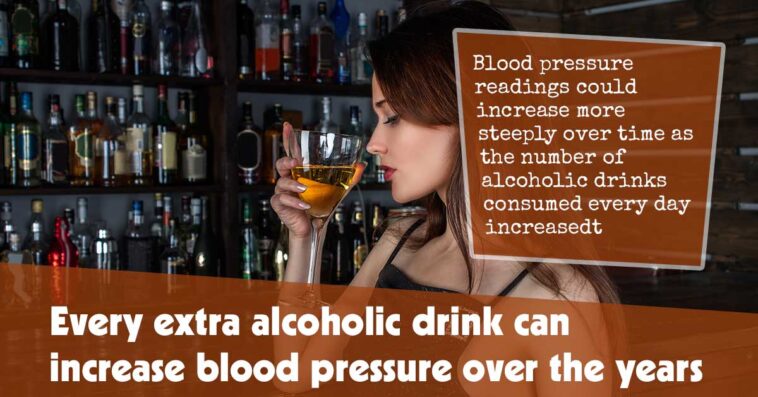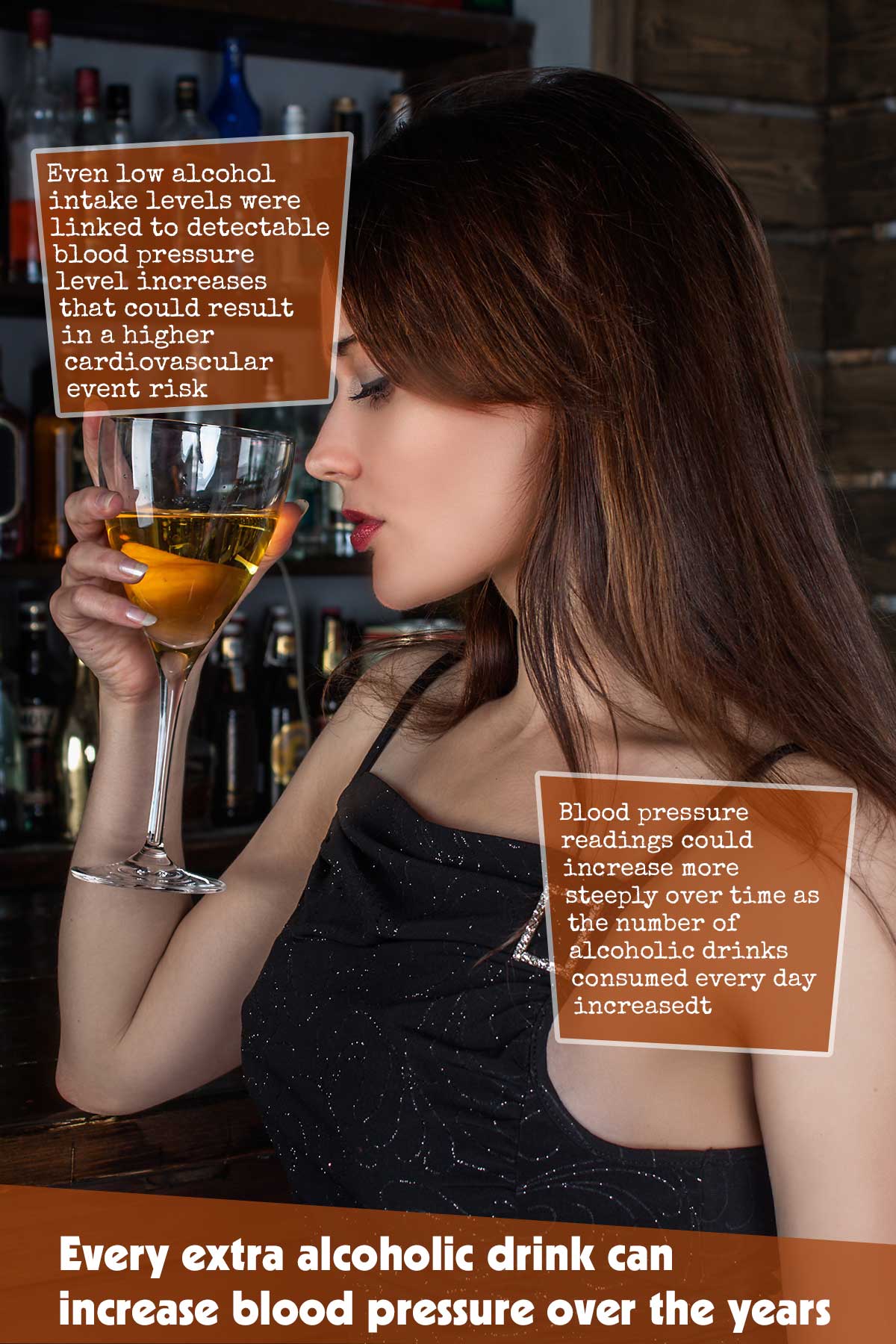According to the results from an analysis of 7 international studies, blood pressure readings could increase more steeply over time as the number of alcoholic drinks consumed every day increased, even in individuals without high blood pressure.1✅ JOURNAL REFERENCE
DOI: 10.1161/HYPERTENSIONAHA.123.21224
The analysis confirms that there was a consistent blood pressure reading increase in both individuals having low as well as high alcohol consumption. Even low alcohol intake levels were linked to detectable blood pressure level increases that could result in a higher cardiovascular event risk.
No beneficial effects were found in individuals who consumed a low level of alcohol in comparison to individuals who didn’t consume alcohol.
An existing low level of alcohol consumption was also associated with higher changes in blood pressure in the long term in comparison to no consumption, though a lot less compared to the increase in blood pressure observed in heavy drinkers.
The analysis was determined by grams of alcohol drank and not only on the number of drinks to avoid the potential bias arising from the different alcohol levels found in ‘standard drinks’ in different countries and/or kinds of drinks.
The individual’s health data for the 7 studies was reviewed for over 5 years. Individuals who consumed alcohol regularly were compared with non-drinkers and it was observed that:
- Systolic blood pressure increased by 1.25 mm Hg in individuals who drank 12 g of alcohol daily on average, increasing to 4.9 mm Hg in individuals drinking 48 g of alcohol daily on average. In the U.S., 1.5 oz. distilled spirits, 5 oz. of wine or 12 oz. of regular beer contains about 14 g of alcohol. In other countries, typical alcohol content varies.
- Diastolic blood pressure increased by 1.14 mm Hg in individuals drinking 12 g of alcohol daily on average, increasing to 3.1 mm Hg in individuals drinking 48 g of alcohol daily on average. These associations were observed in men but not in women.
Alcohol is not the only driver of blood pressure increases; the results however confirm it’s a significant contributing factor. Restricting alcohol consumption is recommended, and avoiding it is better still.
Even though none of the individuals had hypertension when they signed up for the studies, blood pressure readings at the start did influence the alcohol results.
Individuals who had higher starting blood pressure measurements were found to have a stronger connection between alcohol consumption and changes in blood pressure over time. This indicates that low to no alcohol intake could be most beneficial for individuals who had a trend towards elevated, though still not high, blood pressure.
According to the AHA recommendations, if not already drinking then it’s best not to start. If drinking, the risks and benefits of consuming alcohol moderately should be discussed with a health practitioner.
The AHA also doesn’t recommend consuming any kind of alcohol for the potential health benefits. Rather, follow the AHA’s health and lifestyle metrics for optimum cardiovascular health known as Life’s Essential 8: be physically active, consume healthy food, don’t smoke, maintain a healthy weight, get adequate sleep, and control blood pressure, blood sugar, and cholesterol levels.
Study details:
- Data were analyzed from 7 observational studies that involved 19,548 individuals who ranged in age from 20 up until their early 70s when the studies started.
- None of the individuals participating had been diagnosed before with hypertension or other liver disease, diabetes, cardiovascular diseases, binge drinking, or alcoholism.
- Typical alcoholic beverage consumption was documented at the start of each study and this information was translated into the consumption of a typical number of grams of alcohol every day. A new statistical method was made use of that allowed for the results from several studies to be combined and a curve plotted that demonstrated the effect of any amount of typical alcohol consumption on blood pressure changes over time.




